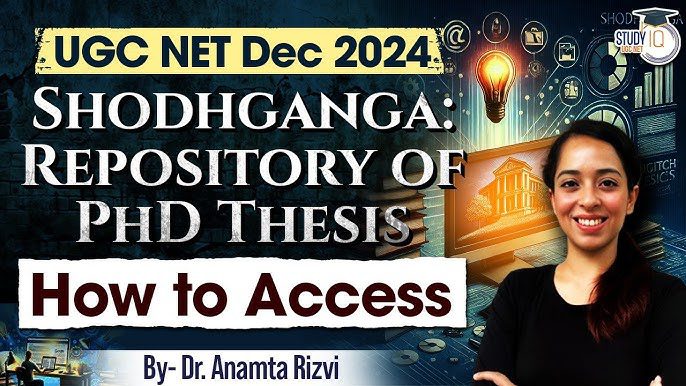For a PhD scholar in India, this is the number one nightmare:
You spend six months developing a “perfect” research topic. You passionately present it to your guide or the university committee. The committee head types a few words into a search bar, turns the screen, and says, “This topic has already been done. See? It was submitted to (XYZ) University last year.”
All your hard work is wasted. You’re back to square one.
Before you write a single word of your proposal, your first and most important task is to ensure your topic is 100% original. In India, the primary tool for this is the Shodhganga repository. This guide will show you how to use it effectively to validate your idea and find a true research gap.
What is Shodhganga (and Why Does it Matter)?
Shodhganga is a digital repository maintained by INFLIBNET (an autonomous Inter-University Centre of the UGC). It is a platform where all PhD scholars from Indian universities are mandated to submit their final theses.
In short, it is a massive database of almost every PhD thesis submitted in India. If a topic similar to yours has been completed, it is almost certainly on Shodhganga. Failing to check this database first is the biggest mistake you can make.
Your 4-Step Guide to Validating Your Topic
Don’t just do one simple search. You need to be a detective.
1. Brainstorm Your Keywords (Broad, Narrow & Synonyms)
Do not just search for your “exact title.” Break your topic down into its core concepts.
- Broad Topic: “The impact of social media on rural women.”
- Keywords:
- Core: “Social Media,” “Rural Women,” “Women Empowerment”
- Synonyms: “Facebook,” “WhatsApp,” “Rural India,” “Gender”
- Specific: “Instagram adoption rural,” “WhatsApp marketing SHGs,” “Digital literacy rural women”
2. Master the Shodhganga Advanced Search
The simple search box is not enough. You need to use the Advanced Search feature.
- Search by Title: Search your most important keywords in the “Title” field. This is the fastest way to find direct overlaps.
- Search by Guide/University: Do you know a professor or university famous for your topic? Search their submissions to see what their students have already done.
- Search by Subject: Use the “Department/Subject” filter to browse all theses in your specific field (e.g., “Sociology,” “Computer Science”). This helps you understand the trends.
3. Go Beyond Shodhganga (Crucial Step!)
Shodhganga is for Indian theses. But what about international research or recently published papers?
- Scopus & Web of Science (WoS): Use these databases to find published journal articles. Your topic might not be a thesis, but it might have been covered in several major papers.
- Google Scholar: Use it to find a mix of articles, theses, and conference papers. Pay attention to the “Cited by” feature to see how the research has evolved.
- ProQuest Dissertations & Theses Global: This is the international version of Shodhganga, containing millions of theses from universities in the U.S., U.K., and around the world.
4. Analyze, Don’t Just Match
You found a thesis with a similar title. Do not panic! This is where real research begins.
- Read the Abstract & Chapter Outline: Does it really cover your idea?
- Look at their Methodology: Maybe they did a quantitative study, but your idea is a qualitative case study. That’s a valid gap!
- Check Their “Limitations” Section: This is a goldmine. The author will literally tell you what their study didn’t do. For example, “This study was limited to urban areas.” Your research on rural areas is now justified!
- Look at the Date: If the thesis was from 2010, your topic is likely still valid. A lot has changed (e.g., in technology, policy, or post-COVID) to justify a new study.
This Process is Hard. Don’t Risk Your PhD On It.
This in-depth originality check is a time-consuming, high-stakes process. It requires deep reading and a trained eye to spot a true research gap versus a simple overlap. Doing it incorrectly can cost you months or even years of wasted effort.
At PhD India, we specialize in this critical first step. Our Topic Selection and Gap Analysis service is built on this rigorous process. Our team of subject-matter experts will:
- Conduct an Exhaustive Originality Check: We search Shodhganga, Scopus, WoS, and all international databases for any overlaps.
- Provide a “Gap Analysis” Report: We don’t just tell you what’s been done; we provide a detailed report on the gaps we’ve found, giving you a list of feasible, original, and significant topic angles.
- Ensure 100% Feasibility: We ensure the topic we help you find is not only original but also aligns with UGC guidelines and is achievable within your timeframe.
Don’t start your PhD journey with a guess. Start with a guarantee.




